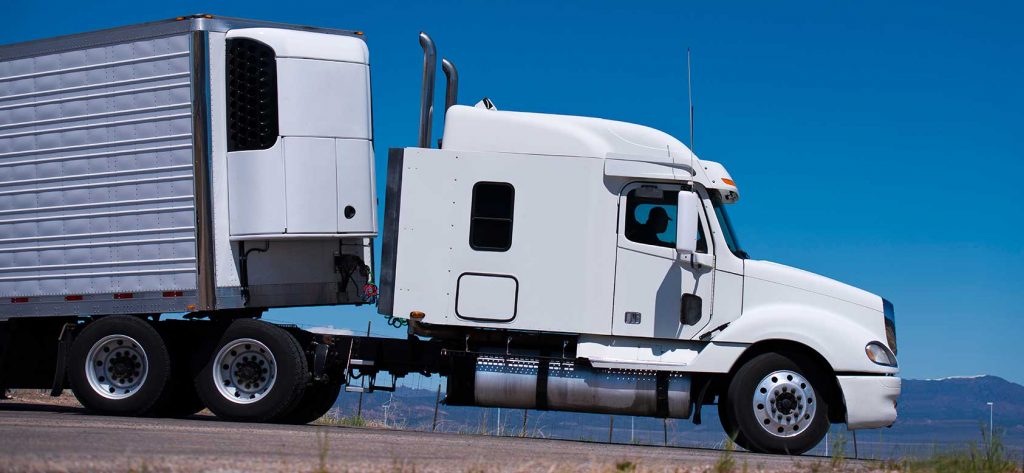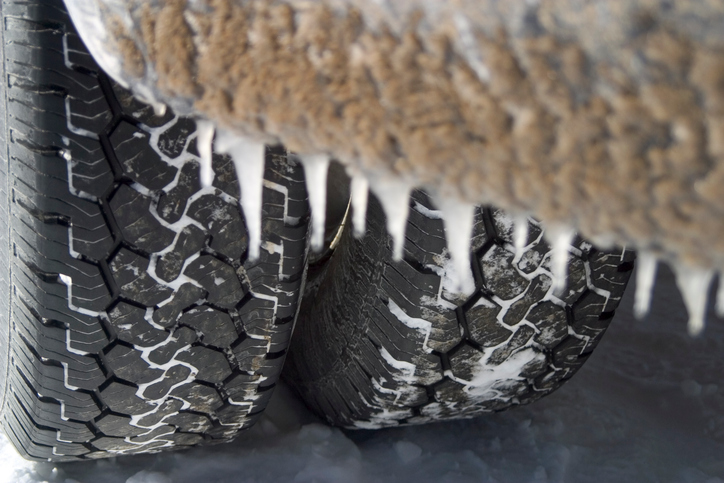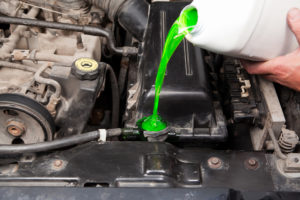The first official day of winter is 3 months away, but you know the real cold weather will arrive long before that. That cold weather puts increased strain on the vehicles in your fleet, and it’s your responsibility to do everything you can to keep your commercial fleet working at full capacity.
1. Get those oil changes done
Cold weather reduces oil’s effectiveness in your vehicles’ engines.
The cold makes oil thicker, and thicker oil doesn’t circulate and lubricate as well as thinner, more freely-moving oil.
Cold weather cranking problems? Here’s the easiest way to deal with that.
The owner’s manual for any commercial vehicle includes recommendations for cold weather oil. For example – if you regularly use a 40 weight oil, you may switch to a 30 weight email from December to March.
2. Inspect and clean up the brakes
Make sure your technicians perform proper air dryer maintenance. The air dryer removes air system moisture and contaminants before entering the brake system, blocking any chance for water to enter the brake system and freeze in the lines.
Frozen air lines can cause brake failure.
While they’re at it, make sure your technicians clean or replace the brake pads. Brakes wear down quicker in the winter, so fresh pads today will ensure your vehicles stay productive through the cold seasons.
3. Winter tires are essential
They aren’t just good for wet, snowy conditions. They grip cold asphalt better than all-season tires. So even if your region rarely gets snow, your vehicles are safer in the cold with winter tires.
How do Bosch alternators do in cold weather? Find out here.
Also, we recommend implementing a tire pressure check system during cold months. Underinflated tires are among the leading causes of tire failure, so keeping tires at the recommended pressure is especially important.
4. Check the batteries
Most commercial vehicle breakdowns during winter are traced back to a weak or dead battery.
The cold drains batteries quickly, and diesel engines particularly require strong batteries with enough cranking amps to start the engine.
A typical battery lasts up to 6 years.
Other electrical issues could plague your fleet in the winter. We put together a simple flowchart for your technicians to follow whenever electrical issues show up. It’ll help them get through the workflow faster.
5. Clean the spark plugs
Rough starts, misfires, jittery idling immediately after start – all signs of dirty or old spark plugs. Have your team inspect and clean, or replace the spark plugs before December.
6. Inspect the belts and hoses
The rubber belts keeping the engine running smoothly are as susceptible to cold stress as every other part of the vehicle.
A worn out belt in the winter is a major safety risk to your operator and vehicle.
Instruct your technicians to check accessory drive belts for signs of cracking or stress and replace all belts with even mild signs of wear immediately.
Inspect the cooling system hoses by squeezing and feeling for brittleness or sponginess, an early sign of impending hose failure.
Again, replace hoses at the earliest signs of wear.
7. Top up the fluids
Top off:
- Power steering fluid.
- Brake fluid.
- Windshield washer fluid.
- Battery fluid.
Specialized commercial vehicles may use additional fluids requiring winterization. Make sure you do it early.
8. Old wipers struggle in cold weather
Windshield get brittle with age, and cold weather exacerbates the impact this has on your windshields.
Replace your wipers annually in November to get the most benefit from new wiper blades in winter.
We’ll steer you in the right direction and help keep your fleet productive, even if the weather drops below -40C.



